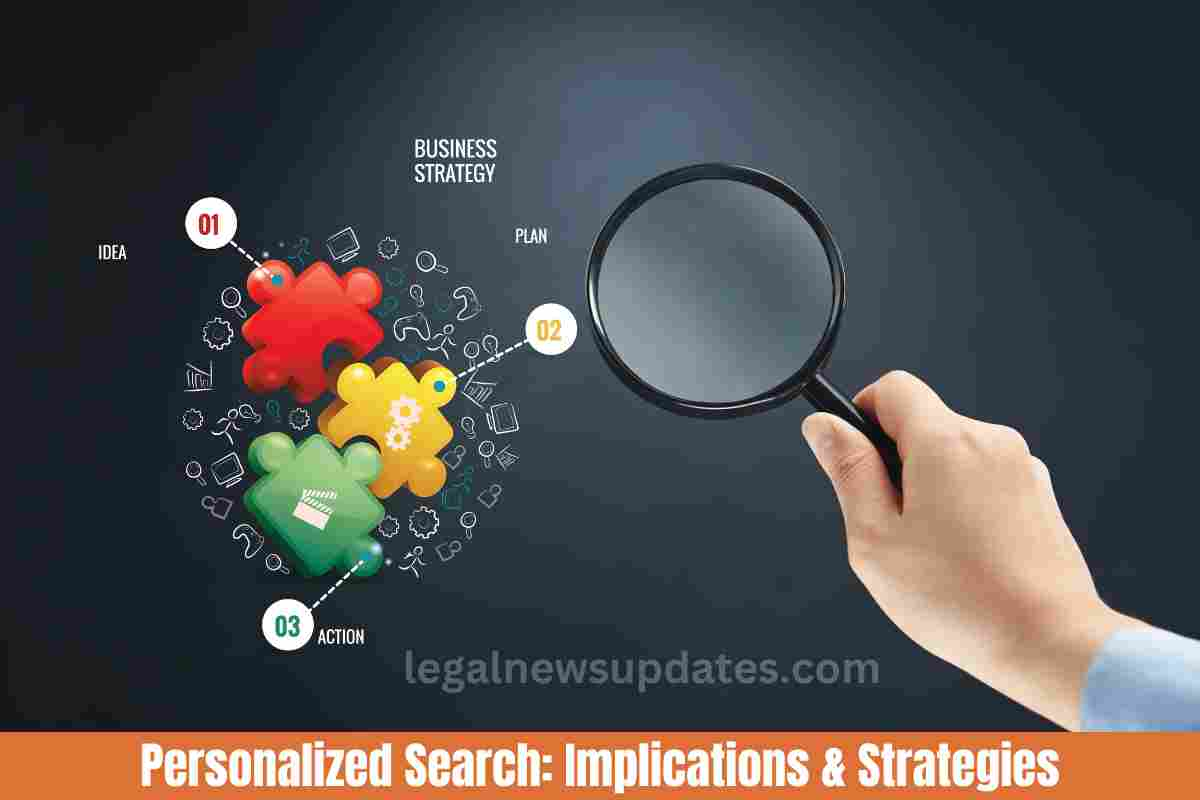Personalized Search: Implications & Strategies
Introduction to Personalization in Search
Personalized Search: Implications & Strategies is a dynamic and ever-evolving phenomenon that aims to enhance the user experience by delivering search results tailored to individual preferences, behaviors, and contexts. Over the years, the digital landscape has grown increasingly complex and saturated with information. The need for personalization has become paramount. This customization seeks to sift through the vast expanse of available data. This is to present users with the information most relevant to their needs, interests, and past interactions online.
Mechanisms behind personalization involve sophisticated algorithms and data analysis techniques that leverage a wide array of user-specific information. This data can include but is not limited to, search history, location data, device usage patterns, and even social behavior signals. By analyzing these data points, search engines can predict what information might be most relevant to a user at any given moment.
The rationale behind this intricate process is straightforward: to improve user satisfaction and engagement with the search engine. By providing highly relevant and personalized results, search engines not only enhance the user experience but also increase the likelihood of users relying on their service for future information needs. This personalized approach represents a significant shift from the one-size-fits-all methodology of early search engines, marking a new era in how information is discovered and consumed online.
How Personalization Works
In this section, we delve into the intricate mechanics of how personalized search functions, exploring the pivotal role of data collection, the application of artificial intelligence (AI) and machine learning (ML), and showcasing examples from leading search engines.
Data Collection: The Foundation of Personalization
Personalized search begins with the collection of a wide variety of data about the user. This data forms the bedrock upon which personalization is built, encompassing:
- Search history: Information about the queries a user has entered and the results they have clicked on.
- Location information: Data that allows search engines to tailor results based on the geographical location of the user, making search results more relevant to their physical context.
- Device usage: Insights from the type of device used (mobile, desktop, tablet), the operating system, and even the browser can influence the personalization of search results, recognizing the varied contexts in which a user may be searching.
- Social signals: Information from social media platforms and online activity can also be leveraged, offering clues about the user’s interests, preferences, and social circles.
These data points, among others, are continuously analyzed to create a dynamic and evolving profile of the user’s preferences and behaviors.
The Role of AI and Machine Learning
AI and ML are the engines that power the personalization of search results. These technologies are capable of processing vast amounts of data, learning from patterns, and making predictions about what content will be most relevant to a user based on their profile. Key aspects include:
- Pattern recognition: AI algorithms identify patterns in user behavior, such as frequently visited sites or topics of interest.
- Predictive analytics: Based on historical data, these systems can predict future search needs and preferences, preemptively tailoring search results even before the user has fully articulated their query.
- Adaptive learning: Personalization algorithms continuously learn from user interactions, refining and adjusting the personalized experience over time to better meet the user’s needs.
Examples of Personalization in Action
Major search engines like Google and Bing are at the forefront of employing personalization in their search results:
- Google: Utilizes a comprehensive approach to personalization, factoring in user search history, location, device information, and even the time of day to deliver customized search results. Google’s AI algorithms are particularly adept at understanding the context of queries, enabling them to anticipate user needs effectively.
- Bing: Microsoft’s search engine, Bing, leverages similar data points for personalization, with added emphasis on integrating social information. Bing’s results can include insights from social media, highlighting how peers and networks influence the information deemed relevant to the user.
These examples underscore the sophisticated nature of personalization in search, where every query is an opportunity to provide a tailored response that aligns closely with the user’s immediate and evolving information needs.
Benefits of Personalized Search: Implications & Strategies
Personalized search offers a multitude of benefits, significantly enhancing the user’s online experience. These advantages include:
Enhanced User Experience and Satisfaction
By delivering search results that are closely aligned with individual preferences and needs, personalized search engines significantly enhance user satisfaction. Users find what they are looking for faster and with less effort, leading to a more efficient and enjoyable search experience.
Improved Search Efficiency and Accuracy
Personalization increases the efficiency of searches by prioritizing results that are more likely to be relevant to the user’s specific context and history. This minimizes the time spent sifting through irrelevant information, directly impacting the accuracy and usefulness of search results.
Increased Relevancy of Search Results
The core advantage of personalized search is the increased relevancy of the results presented. By understanding the user’s intent and preferences, search engines can curate content that is more likely to meet the user’s informational needs, whether for academic research, shopping, local services, or entertainment.
Case Studies Showcasing the Positive Impact
Real-world case studies, such as Google’s improvements in search relevancy through RankBrain, illustrate the tangible benefits of personalized search. These examples highlight not only the technological advancements but also the positive feedback from users who experience a more intuitive and responsive search environment.
Challenges and Criticisms of Personalized Search: Implications & Strategies
While personalized search has significantly improved user experience and search result relevancy, it’s not without its challenges and criticisms. This section explores some of the key concerns associated with personalized search and discusses potential strategies for addressing them.
The Filter Bubble Effect
One of the most discussed implications of personalized search is the creation of “filter bubbles.” This phenomenon occurs when a search engine’s algorithms selectively guess what information a user would like to see based on their past behavior, effectively isolating them from information that contradicts their viewpoints. This can lead to a narrowing of the information landscape, where users become less exposed to diverse perspectives and challenging ideas.
- Implications on Information Diversity: The filter bubble can significantly reduce the diversity of content a user encounters, potentially reinforcing biases and contributing to polarization in society.
- Addressing the Filter Bubble: To mitigate this effect, some suggest that search engines could introduce more diversity into search results intentionally or provide users with controls to adjust the level of personalization.
Privacy Concerns and Data Security
The extensive data collection required for personalized search raises significant privacy concerns. Users may not always be aware of the extent of data being collected or how it is being used, leading to discomfort and distrust.
- Balancing Personalization and Privacy: Ensuring transparency about data collection practices and offering robust privacy controls can help mitigate these concerns. Additionally, adopting data minimization principles. Where only the data necessary for providing the service is collected, can further protect user privacy.
- Legal and Ethical Considerations: The implementation of regulations like the General Data Protection Regulation (GDPR) in the European Union represents efforts. This address these privacy concerns, setting standards for data protection and user consent.
Potential Bias in Personalized Results
The algorithms behind personalized search are not immune to biases, which can stem from biased training data or the algorithmic models themselves. These biases can skew search results in ways that might perpetuate stereotypes or discriminate against certain groups.
- Recognizing and Mitigating Algorithmic Bias: It’s crucial for search engine providers to continually audit and refine their algorithms to identify and reduce bias. Engaging with diverse data sets and perspectives can help in creating more equitable search experiences.
Strategies to Mitigate Challenges
Addressing the challenges of personalized search requires a multifaceted approach:
- Enhancing Algorithmic Transparency: Providing more insight into how algorithms process data and personalize search results. This can help build trust and understanding among users.
- User Empowerment: Offering users more control over their personalization settings and the data used for personalization. This can help balance personalization benefits with privacy concerns.
- Diversity and Inclusion in Algorithm Design: Incorporating diverse perspectives and expertise in the development and oversight of algorithms can reduce the risk of bias and ensure broader societal needs are considered.
Implications for SEO and Content Creators
Personalized search significantly impacts search engine optimization (SEO) and content creation strategies. As search engines increasingly tailor results to individual users, traditional SEO techniques must evolve to account for this customization.
Adapting SEO Strategies
- Understanding User Intent: SEO practitioners need to focus more on understanding the intent behind searches. Tailoring content to meet those needs, rather than merely optimizing for specific keywords.
- Personalization and Localization: Recognizing the importance of location and personal search history in search results, optimizing content for local search. Also creating more personalized content experiences can enhance visibility.
Content Creation in a Personalized World
- Creating Diverse Content: To reach a broader audience in a personalized search landscape. Content creators should consider producing a wider variety of content that appeals to different interests and intents.
- Engagement and User Experience: Enhancing the user experience and encouraging engagement with content can signal its relevance and quality to search engines, potentially influencing its visibility in personalized search results.
The Role of Data Analytics
- Leveraging Analytics: Understanding user behavior through analytics is more crucial than ever. By analyzing how different segments of the audience interact with content, creators can refine their strategies to better meet user needs and preferences.
Future Trends in Personalized Search: Implications & Strategies
As technology continues to advance, so too will the capabilities and implications of personalized search. Emerging trends and technological advancements are poised to further shape the future of search personalization.
Advances in AI and Machine Learning
- Improving Personalization Algorithms: Continuous advancements in AI and ML will enable even more sophisticated personalization. Potentially offering more nuanced and contextually relevant search results.
- Voice and Visual Search: The rise of voice and visual search presents new challenges and opportunities for personalization. As these modalities bring different user expectations and behaviors.
Ethical Considerations and User Data Privacy
- Evolving Privacy Regulations: As public awareness and concern over privacy issues grow. We can expect stricter regulations and standards for data collection and use, influencing how personalization is implemented.
- Balancing Personalization with Privacy: The ongoing challenge will be to refine personalization techniques. Ways that respect user privacy while still delivering the benefits of tailored content.
Conclusion: Personalized Search: Implications & Strategies
Personalized search represents a significant evolution in how we find and interact with information online. Its benefits, including enhanced user satisfaction and search efficiency, are substantial. However, the challenges it presents, such as the filter bubble effect, and potential biases, require careful consideration and ongoing effort to address.
As we move forward, finding the right balance between leveraging personalization for its benefits. While minimizing its drawbacks will be crucial. This will involve not only technological innovations. But also ethical considerations, regulatory frameworks, and an ongoing dialogue among all stakeholders involved in the digital information ecosystem.
The future of personalized search is bright, with tremendous potential to further transform our online experiences.



